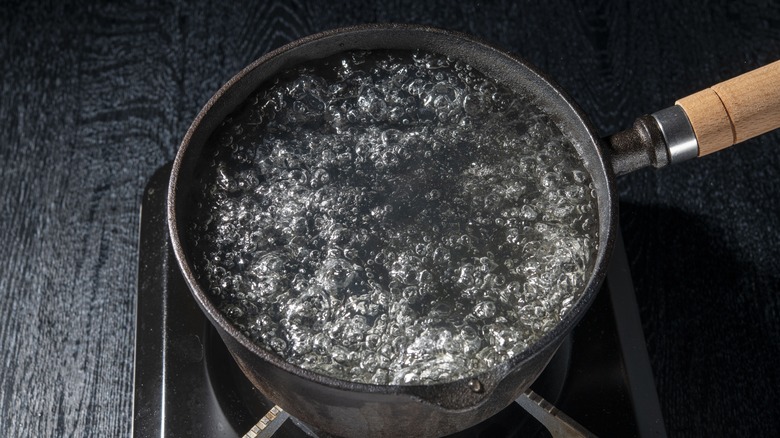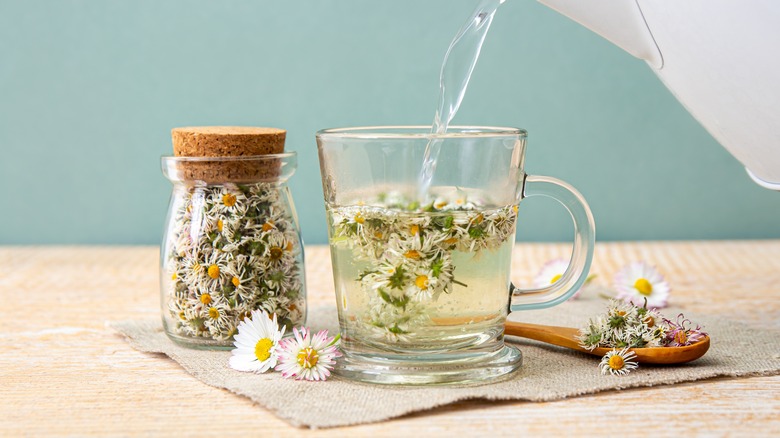Does Cold Water Actually Boil Faster?
We may receive a commission on purchases made from links.
From deviled eggs to perfect al dente pasta and the many foods that are simply better when prepared in water, boiling water is a simple yet indispensable cooking element. Not only does piping hot water tenderize your favorite foods, but it's also an easy way to remove potential waterborne pathogens in the event of a public water crisis. Despite its utility, boiled water doesn't come to a bubbling swell in the blink of an eye, and waiting around for it to reach its boiling point isn't exactly a convenience. But what if you could expedite the process?
You may have heard the rumor that cold water comes to a boil faster than room temperature or warm water, but is it fact or fiction? Chowhound spoke with Kantha Shelke, PhD, CFS, principal of Corvus Blue LLC, food science communicator with the Institute of Food Technologists, and senior lecturer on food safety regulations at Johns Hopkins University, to set the record straight before the kettle whistles.
The short answer is no, cold water doesn't boil faster than room temperature or warm water. In fact, cold water takes longer to boil because, according to Shelke, "it needs more time to absorb the necessary heat to reach its boiling point." This myth likely stems from the fact that cold water absorbs heat more rapidly at first due to the significant difference in temperature between the water and the heating element, informing the misconception that it continues heating at the same expedited rate. "However," Shelke says, "once it [cold water] reaches a similar temperature to hot water, the heating rate continues as that of hot water. So, the cold water actually requires more time than hot water."
Expediting your water boiling process
Whether you need it for instant ramen on the fly or the dried strands of fettuccine you forgot to cook for your world-famous homemade tomato sauce, flash-boiled water can be a crucial time-saver in the kitchen. But don't get tricked by phony life-changing kitchen hacks like the old cold-water-boils-faster gimmick. "Regardless of its initial temperature, water will only start boiling when it reaches its boiling point," Kantha Shelke says. Opt for proven quick-boiling methods instead.
For starters, use the minimum amount of water required for your recipe. The more water you have in the pot, the longer it takes to boil. Using a lid on the pot can help trap hot steam that circulates back into the water, speeding up the process. As you may have already guessed, starting the boiling process with warm water will give you those steaming bubbles faster than cold water does. Beyond these tips, consider purchasing an electric kettle, like Bodum's Electric Gooseneck Water Kettle, which boils water twice as fast as a stovetop flame.

